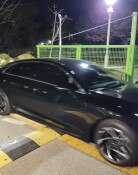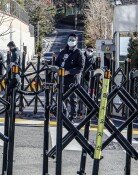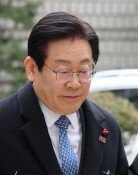Fathers in education
Koreans are living in an era of the informational power of mothers, the economic power of grandfathers, the physical power of children, and the understanding or indifference of fathers in sending their children to prestigious universities. At the center of the four elements lies private education. Mothers must find private academies that are good at teaching and grandfathers should pay the exorbitant tuition. Fathers should accept their wives indifference about them because the latter are too busy caring for their children.
Korean fathers are excluded in the decision-making process for their childrens education and also victimized because of their jobs. Korean fathers are accustomed to seeing their children when they sleep. All meetings related to schools are held in daytime. Private educational institutes, which earn money by fueling the anxiety of mothers, do not welcome rational fathers. Working mothers are also in the same situation as fathers. According to the latest report on social trends by Statistics Korea, a third of all households in Korea are dual income, meaning the sense of deprivation among working mothers is as large as that of fathers. In this regard, it is welcome news that school steering committee meetings will be held in the evening or weekend from next year.
Overseas studies have found that paternal participation in education is beneficial to both fathers and their children. The British National Institute of Child Development has been tracking 17,000 people who were aged 7, 11 and 16 in 1958. In a University of Oxford analysis, the more active fathers were in their childrens education, the higher their childrens scholastic performances tended to be. Paternal participation in education also helped build their childrens sociability, character and satisfaction. A fathers contribution is also bigger for a son than for a daughter.
Schools in the U.S. and Europe hold parents night regularly. After finishing work, parents visit their childrens schools to sit on their childrens classroom chairs, eat school meals, meet the parents of their childrens classmates, and drink cocktails with teachers. Fathers are known to be highly satisfied with such events. In Korea, school steering committees have been criticized for being operated mainly by housewives and the wealthy self-employed since meetings are held in daytime. If they are held in the evening, more working parents can join and schools will be changed for the better.
Editorial Writer Chung Sung-hee (shchung@donga.com)







